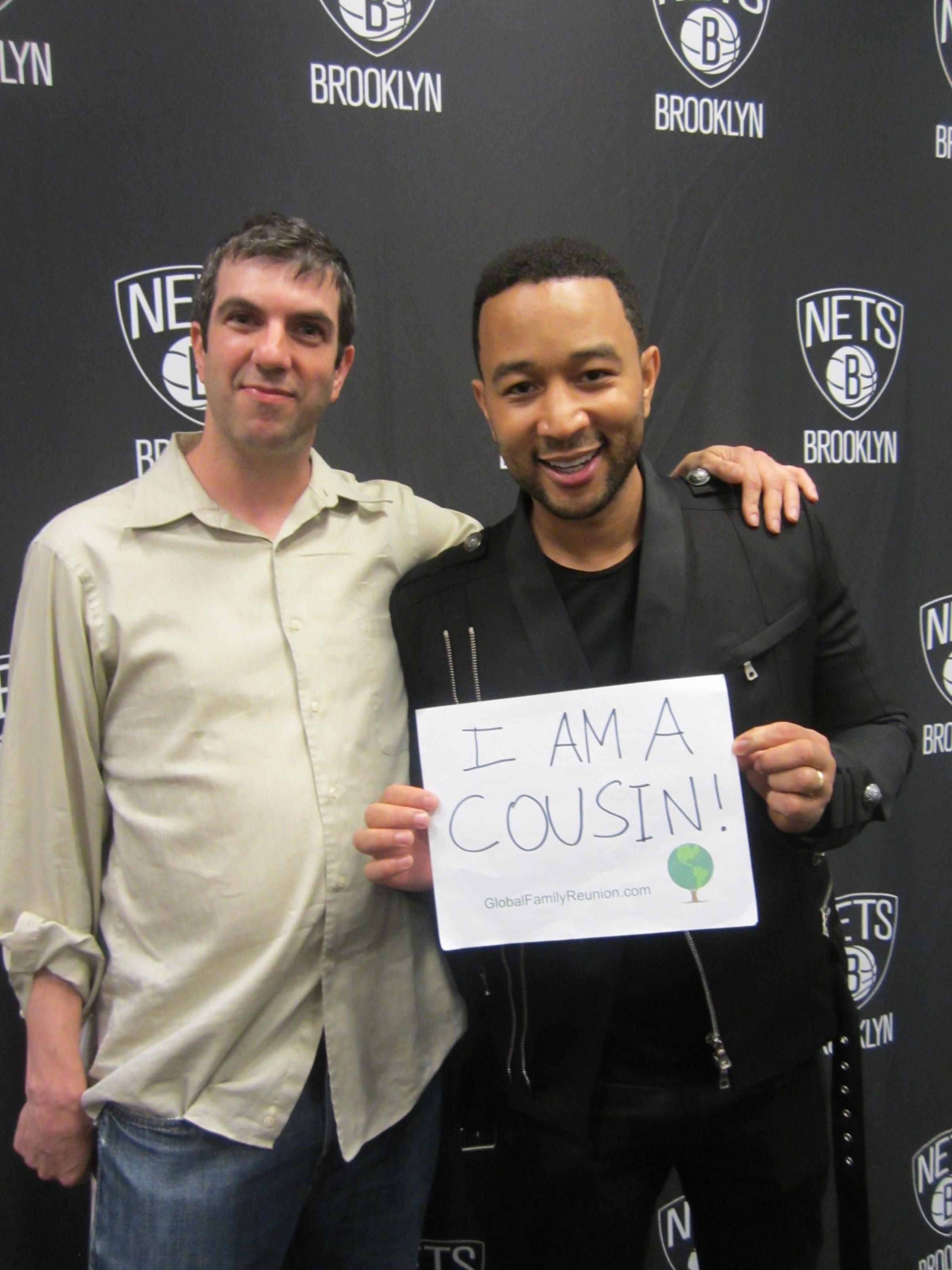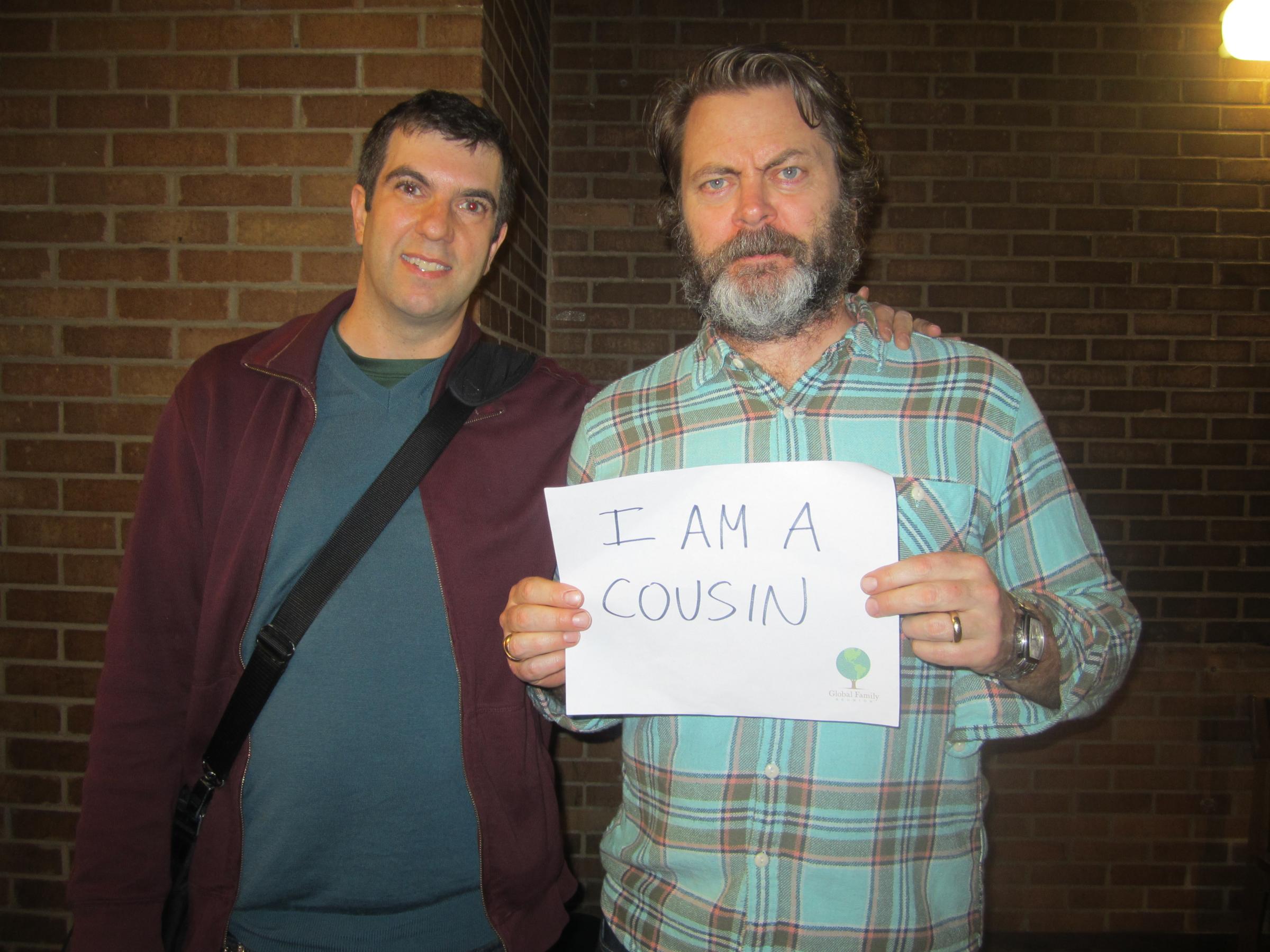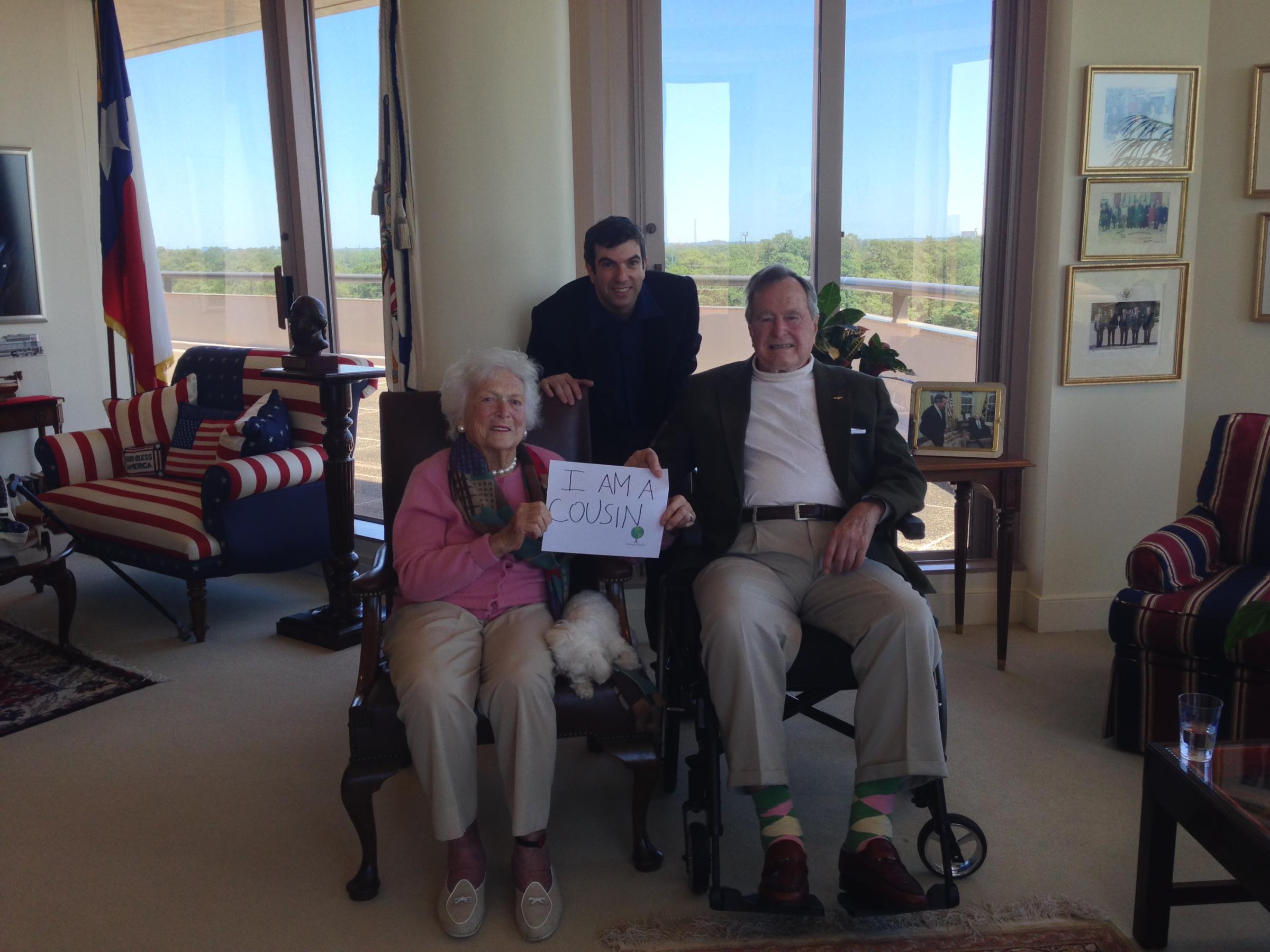
You guys busy the first weekend in June? Because I’m having a party, and you’re invited. After all, you’re family. Really.
I’m holding what I’m calling The Global Family Reunion—a gathering for the entire human family. I got the idea because I learned about the mind-boggling advances in genealogy that are showing just how interrelated all of us homo sapiens are.
People can now use online services and DNA testing companies to join mega-massive family trees. I’m on one family tree that has 92 million people. That’s 92 million humans all connected by blood or marriage spanning 160 countries. Not all are close relatives. For instance, I’m related to Barack Obama—he’s my aunt’s fifth great aunt’s husband’s father’s wife’s 7th great nephew. See you at Passover next year, Mr. President!
I fell in love with this idea and decided to make it the topic of my next book. And also to throw a party to celebrate our massive family. The event is Saturday, June 6, in New York City, and there will be more than 50 performers and speakers, 400 activities – and Sister Sledge singing the wildly appropriate “We Are Family.”
As I’ve been working on this for more than a year, I’ve learned several lessons. Here are four…
We can choose whom we consider family

Here’s the paradox of modern families: Thanks to DNA testing, we can know more accurately than ever who is closest to us biologically. And yet, society is going the opposite direction. DNA is becoming less and less important in whom we consider family.
We are in the age of gay marriage, sperm and egg donors and open adoption. I have a friend who considers her ex-husband’s parents to be very close relatives. “I divorced my husband,” she says, “not his parents.” My kids consider their “cousins” in Providence, Rhode Island to be super-close family. In reality, they are the kids of my sister-in-law’s cousin. So quite a few branches apart.
Some traditionalists feel threatened by this. Not me. The more expansive our families, the more potential caregivers we have. And as my aunt’s 8th cousin twice removed’s wife Hillary Clinton once said, it takes a village.
My family is far more diverse than I imagined

The 190 million members on my family tree are of every hue on earth. My family is diverse. Like if the Village People mated with current and former members of The View (I’m guessing it’d probably be via sperm donorship)?
This is because many of us had ancestors who interbred more back then than we tend to think (sometimes by choice, sometimes by force). And thanks to jet travel and the breakdown of some taboos, the current rate of intermarriage is unprecedented. My immediate family is a good example: My sister married a man from Peru, my first cousin a man from India, my other first cousin a Korean-American.
For this project, I got to interview hip hop star Ludacris. I was able to tell him that he is 1/16th Jewish. He was surprised, but intrigued. (My friend suggested that his Hebrew name could be Mishpucha).
The melting pot used to be quite chunky, with lots of bits that stood out. But it’s slowly turning into a puree. This has its advantages and disadvantages. Some fear the mixing might erode each group’s cultural heritage. I can’t predict the consequences. But I’m hopeful that we can continue to keep cultural traditions even while mixing DNA.
You can teach compassion…at least a little

One of my motivations for working on what I call a Global Family Tree is positively Woodstock-ian. I believe that once we see how closely we’re related, we’ll treat each other with more kindness.
Yes, I sometimes have doubts when I watch how my three sons wrestle. But still, I believe that we tend to treat family members with more kindness than strangers. (See how happy that nice bearded man is to have his photo taken with me? )
Legal scholar Cass Sunstein—who is my first cousin once removed—gave me some intellectual backup on this. He recently wrote an article about the Family Heuristic, the bias to be kinder to known family. The Global Family Tree tricks humans into applying the Family Heuristic to all people.
I’ve seen this happen with myself, and with my kids. When we read about the Nepal earthquake, my kids said that we needed to help our “cousins” in Nepal.
It’s not a perfect solution. A couple of months ago, I went to Chipotle with one of my eight-year-old sons and his friend. The friend dropped a napkin on the floor. I suggested he pick it up.
“Why?”
“Well, someone’s going to pick it up, and the people here are overworked, so it’s a nice thing to do.”
“But they’re my cousins. They won’t mind.”
Ridiculously overambitious projects are a great way to bring a family together

I won’t say that planning a reunion for thousands of people has replaced Mario Party 8 in my kids’ hearts. But it has energized them.
I told my kids earnestly that I am overwhelmed and needed their help. That’s the key: They felt needed.
My 8-year-old volunteered to be head of security at the party. He weighs about 40-lbs., so maybe not the best fit for him. But they have helped me scan family photos for the tree, and manage the Twitter account about the reunion. If I ever run for President, I know they’ve got my back.
And they love coming up with ideas. This morning’s involved robot cousins. I love it. I’m just not sure if our family tree is that quite that diverse.
More Must-Reads from TIME
- Donald Trump Is TIME's 2024 Person of the Year
- Why We Chose Trump as Person of the Year
- Is Intermittent Fasting Good or Bad for You?
- The 100 Must-Read Books of 2024
- The 20 Best Christmas TV Episodes
- Column: If Optimism Feels Ridiculous Now, Try Hope
- The Future of Climate Action Is Trade Policy
- Merle Bombardieri Is Helping People Make the Baby Decision
Contact us at letters@time.com